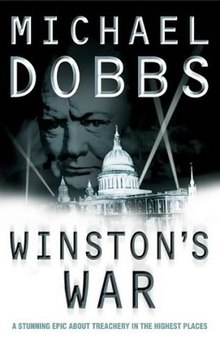
Arthur Neville Chamberlain was a British politician who served as Prime Minister of the United Kingdom from May 1937 to May 1940 and Leader of the Conservative Party from May 1937 to October 1940. He is best known for his foreign policy of appeasement, and in particular for his signing of the Munich Agreement on 30 September 1938, ceding the German-speaking Sudetenland region of Czechoslovakia to Nazi Germany led by Adolf Hitler. Following the invasion of Poland on 1 September 1939, which marked the beginning of the Second World War, Chamberlain announced the declaration of war on Germany two days later and led the United Kingdom through the first eight months of the war until his resignation as prime minister on 10 May 1940.
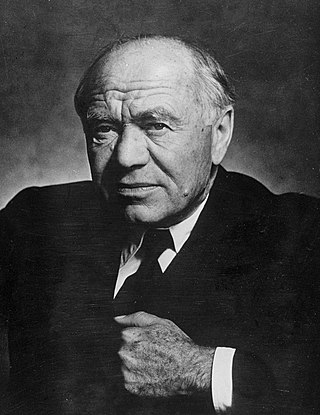
William Maxwell Aitken, 1st Baron Beaverbrook, generally known as Lord Beaverbrook, was a Canadian-British newspaper publisher and backstage politician who was an influential figure in British media and politics of the first half of the 20th century. His base of power was the largest circulation newspaper in the world, the Daily Express, which appealed to the conservative working class with intensely patriotic news and editorials. During the Second World War, he played a major role in mobilising industrial resources as Winston Churchill's Minister of Aircraft Production.

The Munich Agreement was an agreement reached in Munich on 30 September 1938, by Nazi Germany, Great Britain, the French Republic, and Fascist Italy. The agreement provided for the German annexation of part of Czechoslovakia called the Sudetenland, where more than three million people, mainly ethnic Germans, lived. The pact is also known in some areas as the Munich Betrayal, because of a previous 1924 alliance agreement and a 1925 military pact between France and the Czechoslovak Republic.
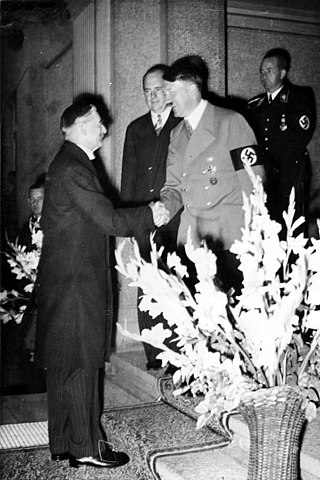
Appeasement, in an international context, is a diplomatic negotiation policy of making political, material, or territorial concessions to an aggressive power to avoid conflict. The term is most often applied to the foreign policy of the British governments of Prime Ministers Ramsay MacDonald, Stanley Baldwin and Neville Chamberlain towards Nazi Germany and Fascist Italy between 1935 and 1939. Under British pressure, appeasement of Nazism and Fascism also played a role in French foreign policy of the period but was always much less popular there than in the United Kingdom.

Edward Frederick Lindley Wood, 1st Earl of Halifax,, known as the Lord Irwin from 1925 until 1934 and the Viscount Halifax from 1934 until 1944, was a senior British Conservative politician of the 1930s. He held several senior ministerial posts during this time, most notably those of Viceroy of India from 1926 to 1931 and of Foreign Secretary between 1938 and 1940. He was one of the architects of the policy of appeasement of Adolf Hitler in 1936–1938, working closely with Prime Minister Neville Chamberlain. After Kristallnacht on 9–10 November 1938 and the German occupation of Czechoslovakia in March 1939, he was one of those who pushed for a new policy of attempting to deter further German aggression by promising to go to war to defend Poland.

Alfred Duff Cooper, 1st Viscount Norwich,, known as Duff Cooper, was a British Conservative Party politician and diplomat who was also a military and political historian.

Michael John Dobbs, Baron Dobbs is a British Conservative politician and author, best known for his House of Cards trilogy.
A war cabinet is a committee formed by a government in a time of war to efficiently and effectively conduct that war. It is usually a subset of the full executive cabinet of ministers, although it is quite common for a war cabinet to have senior military officers and opposition politicians as members.

Brendan Rendall Bracken, 1st Viscount Bracken, PC was an Irish-born businessman, politician and a minister in the British Conservative cabinet. He is best remembered for supporting Winston Churchill during the Second World War. He was also the founder of the modern version of the Financial Times. He was Minister of Information from 1941 to 1945.
Guilty Men is a British polemical book written under the pseudonym "Cato" that was published in July 1940, after the failure of British forces to prevent the defeat and occupation of Norway and France by Nazi Germany. It attacked fifteen public figures for their failed policies towards Germany and for their failure to re-equip the British armed forces. In denouncing appeasement, it defined the policy as the "deliberate surrender of small nations in the face of Hitler's blatant bullying". A classic denunciation of the former government's policy, it shaped popular and scholarly thinking for the next two decades.

Thomas Walker Hobart Inskip, 1st Viscount Caldecote, was a British politician who served in many legal posts, culminating in serving as Lord Chancellor from 1939 until 1940. Despite legal posts dominating his career for all but four years, he is most prominently remembered for serving as Minister for Coordination of Defence from 1936 until 1939.
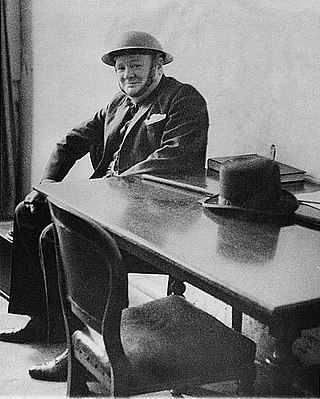
The phrase "blood, toil, tears and sweat" became famous in a speech given by Winston Churchill to the House of Commons of the Parliament of the United Kingdom on 13 May 1940. The speech is sometimes known by that name.

Henry David Reginald Margesson, 1st Viscount Margesson, PC was a British Conservative politician, most popularly remembered for his tenure as Government Chief Whip in the 1930s. His reputation was of a stern disciplinarian who was one of the harshest and most effective whips. His sense of the popular mood led him know when to sacrifice unpopular ministers. He protected the appeasement-supporting government as long as he could.
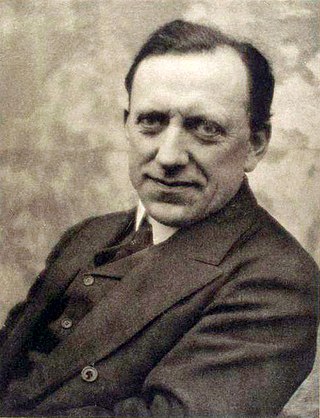
James Louis Garvin was a British journalist, editor, and author. In 1908, Garvin agreed to take over the editorship of the Sunday newspaper The Observer, revolutionising Sunday journalism and restoring the paper, which was facing financial troubles at the time, to profitability in the process.

Andrew Roberts, Baron Roberts of Belgravia,, is an English popular historian, journalist and member of the House of Lords. He is the Roger and Martha Mertz Visiting Research Fellow at the Hoover Institution at Stanford University and a Lehrman Institute Distinguished Lecturer at the New-York Historical Society. He served as a trustee of the National Portrait Gallery from 2013 to 2021.

Sir Horace John Wilson, was a senior British government official who had a key role, as Head of the Home Civil Service, with government of Prime Minister Neville Chamberlain in the appeasement period just prior to the Second World War.

Never Surrender is a novel by Michael Dobbs, based on historical events of the first few weeks of May 1940. It is a sequel to Dobbs's novel, Winston's War, which is based on the events surrounding the demise of Neville Chamberlain and the appointment of Winston Churchill as Prime Minister.

The Churchill war ministry was the United Kingdom's coalition government for most of the Second World War from 10 May 1940 to 23 May 1945. It was led by Winston Churchill, who was appointed Prime Minister of the United Kingdom by King George VI following the resignation of Neville Chamberlain in the aftermath of the Norway Debate.

Named the Greatest Briton of all time in a 2002 poll, and widely regarded as being among the most influential people in British history, Winston Churchill has been regularly portrayed in film, television, radio and other media. The depictions range from minor character to the biographical centerpiece, exceeding 30 films, more than two dozen television shows, several stage productions, and countless books.
Winston Churchill retained his UK Parliamentary seat at the 1929 general election as member for Epping, but the Conservative Party was defeated and, with Ramsay MacDonald forming his second Labour government, Churchill was out of office and would remain so until the beginning of the Second World War in September 1939. This period of his life has been dubbed his "wilderness years", but he was extremely active politically as the main opponent of the government's policy of appeasement in the face of increasing German, Italian and Japanese militarism.
